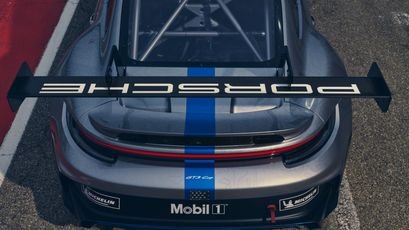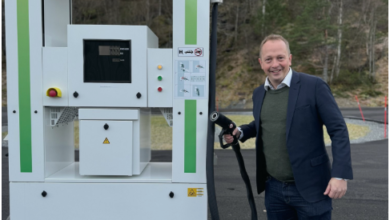Porsche, ExxonMobil to test eFuel ahead of Chile Haru Oni commencement
The eFuel will be tested under demanding conditions on the racing track next year.

Porsche and ExxonMobil have started testing advanced biofuels, with eFuel planned for the next year, H2 Bulletin reports.
Both companies have agreed to explore pathways toward potential future consumer adoption of these fuels. The first iteration of Esso Renewable Racing Fuel is a blend of primarily advanced biofuels developed by ExxonMobil, which is expected to reduce greenhouse gas emissions significantly. It will be tested during the 2021 Porsche Mobil 1 Supercup race series.
Both partners will also collaborate on eFuel, a synthetic fuels made from hydrogen and captured carbon dioxide. The eFuel will be tested in early next year in the second iteration of Esso Renewable Racing Fuel. It is expected that synthetic fuel made from hydrogen will achieve the target emissions reduction of up to 85% when blended to current market fuel standards.
The eFuel will be sourced from the Haru Oni pilot plant based in Chile that generates hydrogen. In the pilot phase, around 35k gallons of eFuels will be produced in 2022. Porsche will use the eFuels in the Porsche Mobil 1 Supercup starting in 2022.
Michael Steiner, Member of the Executive Board, R&D of Porsche, said, “eFuels are a good complement to our powertrain strategy. They allow our customers to drive cars with conventional combustion engines as well as plug-in hybrids with significantly lower greenhouse gas emissions.”
Andy Madden, VP of strategy and planning for ExxonMobil Fuels & Lubricants, said, “Our continued collaboration on renewable and eFuels is a critical step in assessing the technical capability and commercial viability of fuels that can significantly reduce emissions.”
The first on-track testing of Esso Renewable Racing Fuel is scheduled for 30th March 2021 in Zandvoort, Netherlands, and will continue throughout the 2021 and 2022 Porsche Mobil 1 Supercup race series.
In January, ExxonMobil set up ExxonMobil Low Carbon Solutions to commercialise its extensive low-carbon technology portfolio with a US$ 3 billion planned investment on lower-emission energy solutions through 2025.
